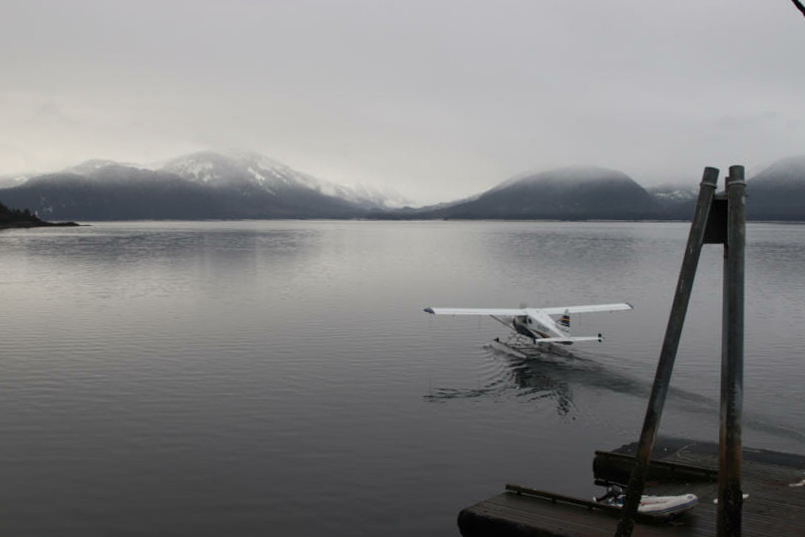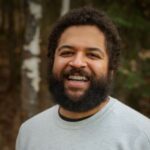
The Alaska Native Claims Settlement Act allowed for Alaska Native communities to establish for-profit corporations more than 50 years ago, but five Southeast communities were left out.
There are now federal bills that would recognize Haines, Ketchikan, Petersburg, Tenakee Springs and Wrangell under ANCSA and create five new Alaska Native corporations.
The proposal initially saw opposition from The Wilderness Society, but according to a recent Indian Country Today story, the environmental organization has shifted its position and is now in support of including the five communities in ANCSA.
Indian Country Today reporter Joaqlin Estus, who’s Tlingit, says the reason the five communities were left out in the first place likely had to do with population.
Listen:
[Sign up for Alaska Public Media’s daily newsletter to get our top stories delivered to your inbox.]
This interview has been lightly edited for length and clarity.
Joaqlin Estus: What stands out is that all five had more non-Natives than Natives living in them. They were predominantly non-Native. Now, what’s odd about that is that there were smaller villages that had fewer Natives, but they were a higher percentage of the population. And they were allowed to form Native corporations. So for instance, Wrangell was 19% Alaska Native, with 747 enrolled citizens, whereas Craig had 317 — less than half — but they were 56% Native, and they were allowed to form a Native corporation.
So there’s also been speculation that the reason they were left out is because they were logging towns, and some of their competitors or would-be competitors thought that forming Native corporations there would complicate relations with the U.S. Forest Service and basically become competition for them.
Wesley Early: So the Wilderness Society initially didn’t want these five communities to be ANCSA-recognized. What was the reasoning before?
JE: Well in the early days, after the Alaska Native Claims Settlement Act was adopted, the corporations were struggling. They had a little bit of startup money, but they needed to make a lot of money fast to stay solvent. And so they turned to logging, and they selected lands based on the timber potential. And that lasted until the bottom fell out of the timber market.
There have been more than 100 amendments to the Alaska Native Claims Settlement Act, and one of them was to allow corporations to sell net operating losses. And that’s what they turn to next. Now, a lot make money under the Small Business Administration 8A program, which gives them an advantage in federal contracting. But the Wilderness Society and other environmental groups were afraid that these new corporations would turn to logging on lands they selected from the Tongass National Forest.
WE: What changed their mind? Why are they now in support of allowing these communities to establish corporations?
JE: I think logging is not economically viable. Back when they were logging like crazy, the U.S. Forest Service had a 50-year contract to supply a certain amount of timber, to put that out there available for the market. Well, Congress did away with that law. And so, you know, there’s not a guarantee that you’re going to get any amount of timber out of the Tongass, and you have to go through a really lengthy process to get timber. So that’s part of it.
The other thing, though, and what the Wilderness Society says, they basically see this as a matter of social justice, Alaska Natives gave up all the land and resources in Alaska, in exchange for title to some of it and some money. And these Natives were left out. And so it’s a matter of social justice now for the Wilderness Society. And that overrides concern about the environment, in this case.
WE: You’ve been following a lot of this for quite a while. Is there any sense that serious traction will be made on granting those rights to those communities?
JE: You know, in addition to the environmental groups, there is opposition from people who don’t want to see public lands transferred to for-profit entities. And the Petersburg Assembly actually voted 4-3 to oppose the legislation. And I saw a letter from a part-time resident of Tenakee Springs who said the lands that have tentatively been identified for selection include some very popular hunting and fishing and recreation sites. And they don’t want to see that go out of the public domain and into private hands. So there is opposition. These five communities have been trying to make this happen for decades now. So your guess is as good as mine as to how much traction they have now.
Wesley Early covers Anchorage life and city politics for Alaska Public Media. Reach him at wearly@alaskapublic.org and follow him on X at @wesley_early. Read more about Wesley here.





